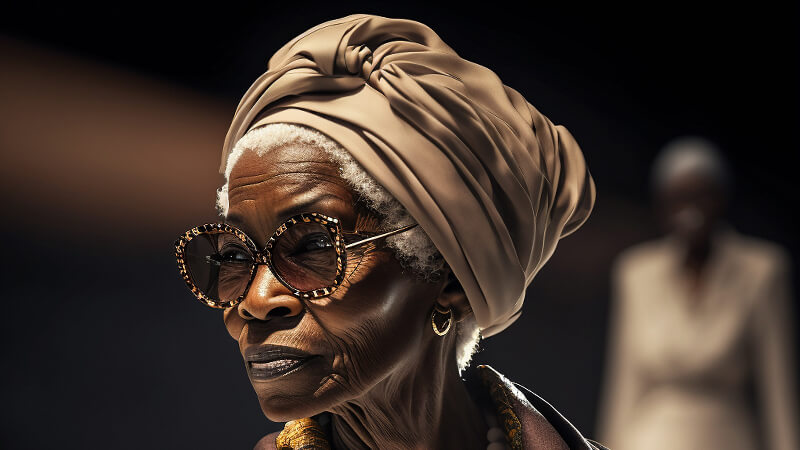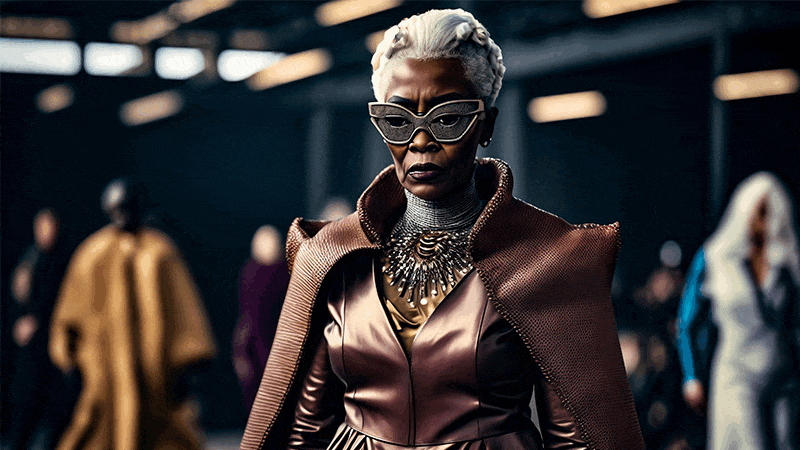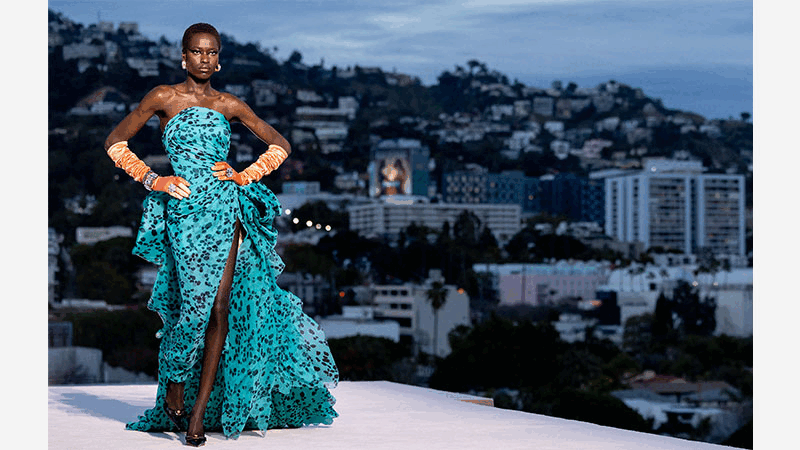The Nigerian Filmmaker Using AI To Fight Ageism In The Fashion Industry
Age doesn’t seem to have much of a place in fashion. Think of most runway shows, and chances are the only images that’ll come to mind will be of young, often too-thin, predominantly white models, whose perfect skin and dewy looks are almost crystallised in time. The same goes for ad campaigns, billboards and fashion editorials.
But what if old – or just older – people had a spot on the stage, too? Fashion Show For Seniors, a photo series by Nigerian filmmaker and artist Malik Afegbua attempts to answer that question.

The images are, simply put, an homage to old age. Black African models with grey hair and lined faces are seen strutting the runway. They’re draped in beautiful shawls and wraps, elaborate gele (a type of head tie predominantly worn in West Africa) and fila (a soft hat for men). The overall effect is joyful and arresting, the models proud of their years.
Except, they aren’t real. Afegbua used AI-software to conjure this parallel fashion world. It’s a way, he says, to show how technology can challenge stereotypes and forge new conversations around topics such as ageism.
“With my work, I always try to find new ways to tell stories,” he says, speaking from his home in Lagos, Nigeria. “Artificial intelligence is proving to be a fantastic tool to do that. It can help create things that don’t exist, like older models on a runway – as obvious as that might sound. I see it as a way to shift perceptions.”
Fashion Show For Seniors – which propelled Afegbua to Instagram and media stardom in early 2023 – is part of a bigger endeavour titled The Elder Series, which is set on debunking stereotypes around older people as well as celebrating African faces and bodies. Like the runway show, the project puts digital grandpas and grannies in colourful, beautiful garments inspired by traditional Nigerian clothing and Afro-futuristic fashion.
Afegbua credits his mother as his inspiration. “She had a stroke last year. It has been incredibly hard, as I have always been close to her,” he says. “I found myself imagining a place where she would be happy, and that’s how I started working on this. I thought these images would put a smile on her face and maybe on others’, too. From there, it evolved into a wish to speak for the elderly and the marginalised. To make them feel seen.”
Asked whether he thinks AI was the only way to achieve that visibility, Afegbua replies with a confident “yes”. “Had I gone to a production company to propose they put a group of older people on the catwalk, they would have thought I was joking,” he explains. “But because this is a finished product – you can see how stunning they look, and how it can really be done. It’s easier to take the conversation in a new direction and say, ‘This isn’t far-fetched.’”
He believes AI can be a powerful tool for the arts in general. “Tech is only going to get better,” he says. “So why not embrace it? As an artist, it can help you reach your destination faster, with sharper clarity.”
At the same time, he notes, Black creators can also use AI to improve it. “When you search ‘Black woman in a fashion show’ in the AI software, the images I made might come up, because they’re now part of the system,” he says. “That can expand the way we’re portrayed digitally, which means better representation. I see it as a relationship that can only become stronger.”
Marianna Cerini is a freelance writer for publications including Conde Nast Traveler, BBC Travel, CNN Style and Fortune




